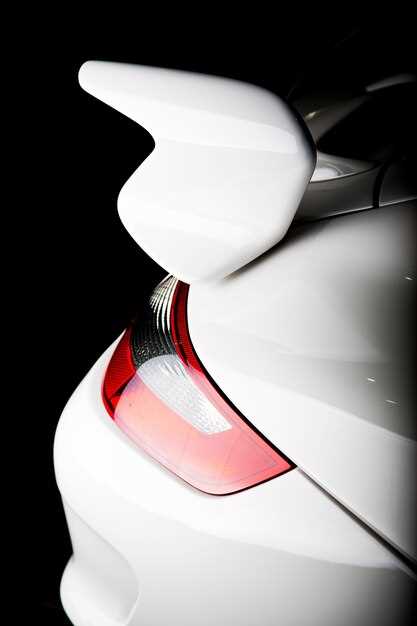
The Geneva Motor Show, one of the most anticipated events in the automotive calendar, once again showcased the latest innovations and trends in the auto industry in 2025. This year’s show brought together industry leaders, car enthusiasts, and journalists from around the globe, creating an atmosphere charged with excitement and anticipation.
Amidst the stunning displays and cutting-edge technology, the event highlighted ten remarkable vehicles and concepts that set the tone for the future of transportation. From groundbreaking electric vehicles to luxurious hypercars, the auto exhibition offered a glimpse into what consumers can expect in the coming years.
As we delve into the top highlights from this year’s show, we will explore how these groundbreaking designs, advanced engineering, and sustainable practices are shaping the auto industry landscape. Each vehicle represents not only a significant achievement in design and performance but also a commitment to addressing the evolving needs of drivers and the environment.
Key Electric Vehicle Launches at the Geneva Show

The Geneva Motor Show 2025 showcased a remarkable array of electric vehicles, setting new standards in design, technology, and sustainability within the auto industry. Here are some of the key electric vehicle launches that generated significant buzz at the event:
-
Nexa E-1:
Nexa unveiled the E-1, a compact electric SUV that emphasizes efficiency and style. With a range of up to 300 miles on a single charge, it is aimed at urban drivers seeking eco-friendly transport without compromising on aesthetics or functionality.
-
Voltaris Zephyr:
This striking electric sedan combines luxury with cutting-edge technology. Featuring advanced AI integration for navigation and driver assistance, the Zephyr promises a seamless driving experience, complemented by a sleek, aerodynamic design.
-
EcoDrive Urban Box:
The Urban Box is a versatile electric vehicle designed for both personal use and commercial applications. Its modular design allows for various configurations, making it an ideal choice for last-mile delivery services and city commuting.
-
Rivara e-Coupe:
Rivara debuted its e-Coupe, a sporty electric vehicle that combines performance and sustainability. With dual motors providing an impressive zero to sixty acceleration in just 3.5 seconds, it caters to enthusiasts who desire excitement in an electric format.
-
Solaris CityRunner:
This innovative electric vehicle features solar charging capabilities, allowing it to harness sunlight for additional power. The CityRunner is designed specifically for urban environments, making it a practical solution for eco-conscious city dwellers.
The Geneva show has undoubtedly confirmed that electric powertrains are becoming the forefront of automotive innovation, with manufacturers pushing boundaries to deliver vehicles that are not only efficient but also appealing to a wide range of consumers.
Innovative Technologies Showcased by Leading Manufacturers
The Geneva Motor Show 2025 served as a platform for the unveiling of advanced automotive technologies from top manufacturers. Automakers embraced electrification, integrating next-generation battery systems to enhance vehicle efficiency and reduce charging time significantly. Several models showcased solid-state batteries, promising greater energy density and improved safety over traditional lithium-ion solutions.
Furthermore, the event highlighted the rise of autonomous driving technology. Leading brands presented their latest advancements in AI-powered systems for enhanced safety and user experience. These innovations included superior sensor fusion, allowing vehicles to navigate complex environments with precision and confidence.
Manufacturers also introduced innovative connectivity features, promoting seamless integration between vehicles and smart devices. This connectivity enables real-time data sharing, enhancing diagnostics, navigation, and even in-car entertainment options. Such developments underline the growing trend of transforming automobiles into digital hubs.
Another significant highlight was the emphasis on sustainability. Many exhibitors showcased eco-friendly materials used in vehicle production, from recycled plastics to bio-based composites, contributing to reduced environmental impact. This commitment to greener alternatives reflects the industry’s dedication to sustainability initiatives.
The integration of augmented reality (AR) in display technology was another focal point. Leading manufacturers displayed AR heads-up displays that provide essential driving information in a clear and intuitive manner, enhancing situational awareness while on the road.
In conclusion, the Geneva Motor Show 2025 proved to be a pivotal event where leading manufacturers emphasized innovative technologies that are shaping the future of the auto industry. These cutting-edge advancements not only improve performance but also contribute to a more sustainable and connected driving experience.
Noteworthy Design Trends and Concepts Unveiled

This year’s Geneva Motor Show showcased a plethora of innovative design trends that highlight the future of the automotive industry. Several manufacturers emphasized sustainability through the use of recycled materials in their vehicle interiors, creating a striking balance between luxury and eco-friendliness.
Another significant trend was the integration of advanced technology into the design process. Automakers presented concepts featuring augmented reality displays and digital dashboards that enhance the driving experience, merging the virtual with the real world seamlessly.
Additionally, the emphasis on aerodynamics was evident, as many vehicles featured sleek, flowing shapes that not only improve performance but also create visually stunning silhouettes. This trend signifies a shift towards more performance-oriented designs without sacrificing aesthetic appeal.
The electrification of vehicles remained a key focus, with numerous electric models unveiled that exhibit bold, futuristic designs. These concepts not only prioritize efficiency but also signal a new era of automotive styling that breaks away from traditional forms.
Furthermore, customizability emerged as a noteworthy theme, with several brands offering vehicles that can be tailored to individual preferences. This trend reflects a growing desire for personalization among consumers, allowing them to express their unique identities through their automobiles.
The Geneva show also highlighted the revival of retro-inspired designs, where manufacturers drew influence from classic models, reinterpreting them with a modern twist. This blend of nostalgia and contemporary technology appeals to a wide audience, bridging generational gaps.
Finally, many concepts introduced multifunctional spaces within vehicles, showcasing interiors that adapt to diverse needs, such as work or relaxation. This flexibility indicates a shift towards viewing cars as versatile living spaces rather than simply modes of transport.
